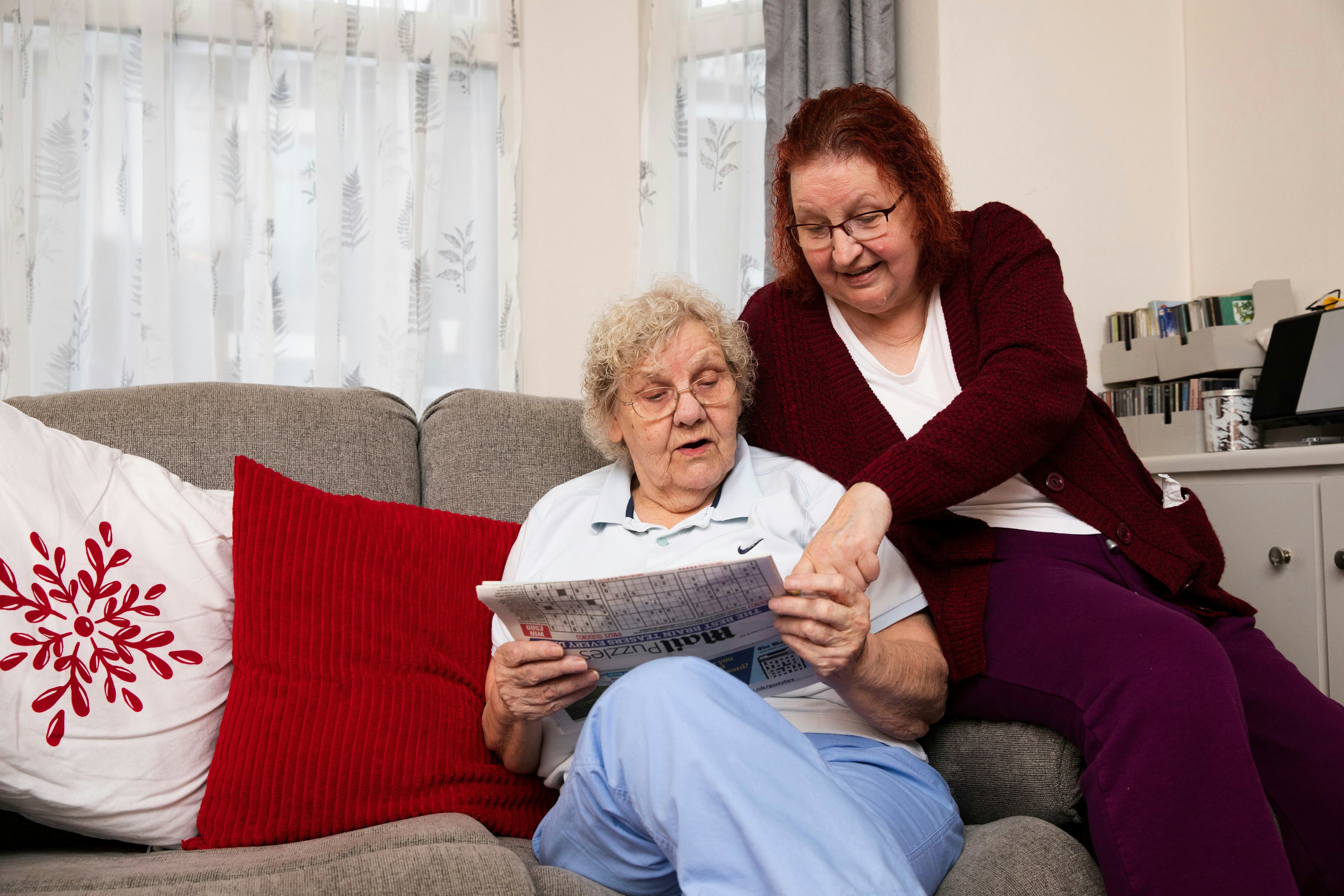Home care
Financial Assistance for Caregivers: The Complete List
Scroll down

26 November 2025
|
4 min
Caregivers play a fundamental role in supporting those in need. Through emotional support, caregiving, home assistance, or logistical support, these individuals have a decisive impact in alleviating the burden on people with disabilities. However, being a caregiver takes time and energy! The weight of responsibility can also become a strain on caregivers. To help you, here is a list of the financial and logistical assistance you are entitled to as a caregiver!
List of Tax Credits for Caregivers
Both the Government of Canada and the Government of Quebec have established various tax credit and benefit systems to assist caregivers. Here is a comprehensive list to help you understand these options better:
Federal
Deductions and Tax Credits
- Canadian Caregiver Credit: Provides a tax credit of $2,350 or more, depending on the status of the person you are caring for.
- Disability Tax Credit: Eases the tax burden for a person with a disability or a family member to offset additional expenses due to the disability.
Employment Insurance
- Employment Insurance Benefits and Leave: Offered to caregivers who need to take time off work to care for someone who is seriously ill or injured. During this leave, you can recover up to 55% of your salary (up to a maximum of $650 per week).
Quebec
Tax Credits
- Caregiver Tax Credit: A tax credit available in two parts, providing up to $1,299.
- Part for caregivers living with a person aged 70 or older.
- Part for caregivers assisting a person aged 18 or older with a severe and prolonged physical or mental disability.
Applying for Tax Credits? How to Do It
- For Canadian or Quebec tax credits: You can apply when filing your annual income tax return. If you are unsure about which lines to fill out, consult an accountant who can guide you.
- For Employment Insurance benefits and leave: You can apply directly online, by phone, or by mail. After submitting your application, the government will review your file and contact you once a decision is made.
Are You Considered a Caregiver?
A caregiver is someone who provides moral or physical support to a person suffering from mental or physical disabilities. The support can be continuous or occasional and take various forms.
Caregivers can be family members, but they don’t have to be! They can also be friends, neighbors, and come from all age groups (teens, adults, seniors). A blood relationship is not essential for someone to become a caregiver.
In summary, caregivers:
- Can be family members (spouses, children, parents, etc.), friends, or simply part of the immediate circle (e.g., neighbors) of the person with a disability.
- Come from all age groups.
- Represent all social backgrounds.
- Aim to support a person’s recovery or improve their quality of life.
According to the Institut de la statistique du Québec, at least one in five people can be considered a caregiver in the province.
Sometimes, a person is a caregiver without even realizing it!
What Tasks Does a Caregiver Perform?
Caregiving can be carried out in various ways: providing care, doing household chores, helping with medication, being present at home, or making regular phone calls, etc.
In this context, there are many ways to help. But generally, the assistance provided falls into one or more of these categories:
- Psychological and moral support.
- Help with daily living.
- Material/logistical support.
- Medical care and/or assistance with medication.
Are You a Caregiver? Here Are Some Tips:
#1 - Utilize the Financial Aids Available to You!
Depending on the duration and involvement of your role as a caregiver, it is possible (and entirely normal) that you also need respite and/or financial support. Don’t hesitate to take advantage of the financial aids available to you. The government has set them up for use.
These aids can provide a little extra support over time and help if caregiving impacts your financial stability.
#2 - Take Respite Breaks
We’ve already discussed the credits and benefits available from different levels of government. But did you know that caregiver support services also exist?
Professional caregivers can step in to provide care for your loved one, giving you a break as well.
#3 - Also Think About Your Health
Being a caregiver is a very honorable activity. However, if you are not in good health yourself, it will be difficult to provide support to another person in the medium/long term.
So, be careful not to exhaust yourself, as overextending yourself might make you unable to help at all.
Other Online Resources
Would you like to learn more about the various aids for caregivers or the caregiver status in Quebec? Here are some resources that helped build this article. If you want to explore further, they will be just as useful to you as they were to us.
- What is caregiving?
- Statistics on caregiving in Quebec
- Financial aids
- Tax credits
Get Help with Bien Chez Soi
Your dedication to your loved one is admirable, and at Bien Chez Soi, we understand the challenges you face every day.
Allow us to share this effort with you so that you can spend more precious moments with your loved one. Discover how Bien Chez Soi can simplify your daily life while providing the best support to those you care about.




